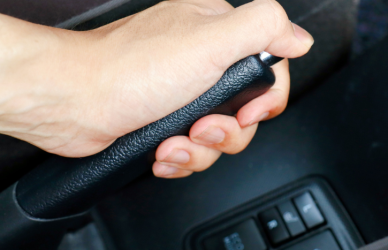Truck drivers have been voicing their worries about the effectiveness and dependability of automatic emergency braking (AEB) technology. These concerns have been brought to the attention of the National Highway Traffic Safety Administration (NHTSA) and the Federal Motor Carrier Safety Administration (FMCSA) by the Owner-Operator Independent Drivers Association.
To address these concerns and improve safety on the roads, NHTSA and FMCSA have recently announced a joint proposal. This proposal would mandate the inclusion of AEB systems and electronic stability control (ESC) systems in new vehicles weighing over 10,000 pounds.
Under the proposed rule, all Class 7 and 8 vehicles (weighing over 26,000 pounds) would be required to meet AEB standards within three years of the rule’s implementation. Similarly, Class 3-6 vehicles (weighing between 10,001 and 26,000 pounds) would need to comply with AEB and ESC requirements within four years. Small-volume manufacturers would have a five-year grace period.
The proposal would not force existing heavy vehicles to be retrofitted with AEB technology.
On July 24 OOIDA sent a letter to the agencies expressing their trepidation.
“We are writing to express our concerns about the agencies’ notice of proposed rulemaking to require automatic emergency braking systems on heavy-duty trucks because the proposal will jeopardize our members’ safety,” OOIDA wrote in the letter signed by President and CEO Todd Spencer.
Reports from drivers have alerted OOIDA to issues with false activation, inclement weather complications, and other concerns related to certain Freightliner and Western Star trucks. Following these reports, NHTSA has initiated an investigation into false automatic braking on these trucks.
The investigation was prompted by 18 complaints of false emergency braking activation, where no actual obstacle was present on the road. In some cases, this false activation caused the truck to come to a full stop in the travel lane. Fortunately, no crashes have been reported as a result of these false braking incidents.
This investigation has the potential to impact around 250,000 trucks, as the aim is to determine whether this alleged defect poses an unreasonable safety risk.
“While there are many operational concerns about using an AEB system, truckers are especially worried about the potential for false activations,” OOIDA wrote. “As you can imagine, drivers are concerned the 80,000-pound truck they are driving could unexpectedly brake to a complete stop for no reason. In the face of this threat, the best the agencies offer in the (proposal) is ‘some assurance that an AEB system is capable of differentiating between an actual imminent collision and a non-threat.’”
Experienced truck drivers with a clean record are understandably worried about the government’s decision to enforce technology that isn’t fully refined yet, according to OOIDA.
“For drivers who have years of experience and millions of accident-free driving miles, it is inconceivable that the government would require them to hand over control of their vehicle to a technology that may or may not be able to accurately detect a threat.”
OOIDA acknowledges that FMCSA and NHTSA have a congressional mandate to issue this regulation, which includes consulting with commercial motor vehicle drivers about their experiences with automatic emergency braking systems; however, the Association points out that this step was not taken.
“It is clear drivers with AEB experience should have been consulted before issuing the proposal,” OOIDA wrote. “We believe the ‘insufficient and not comprehensive’ standards would have been better informed through these discussions, and (the proposal’s) issuance is evidence that DOT has not met its obligation under the law.”
Have your say on the proposed rulemaking by visiting regulations.gov before September 5th. Simply enter Docket Nos. FMCSA-2022-0171 or NHTSA-2023-0023. Remember, there’s no need to submit comments to both agencies. If you’re a truck driver looking for an easy way to provide feedback, check out FightingforTruckers.com, where OOIDA has made it hassle-free to have your voice heard by the relevant agencies.
Source: Land Line











